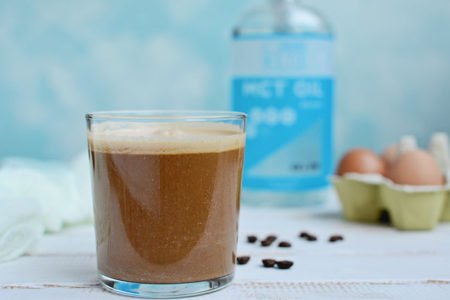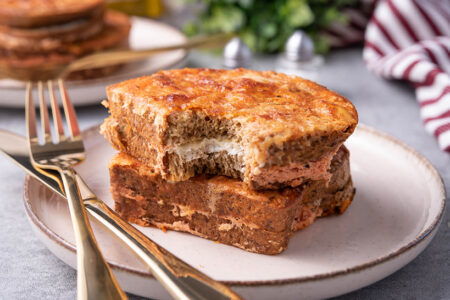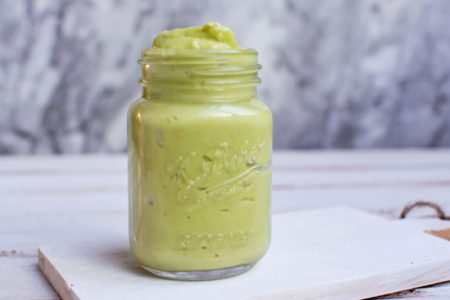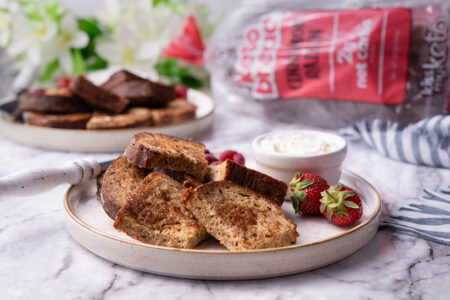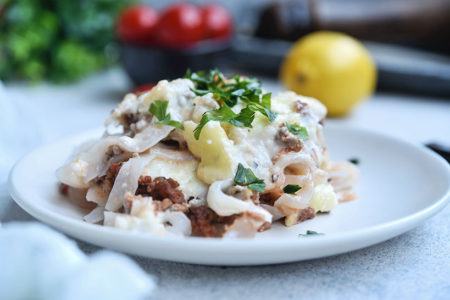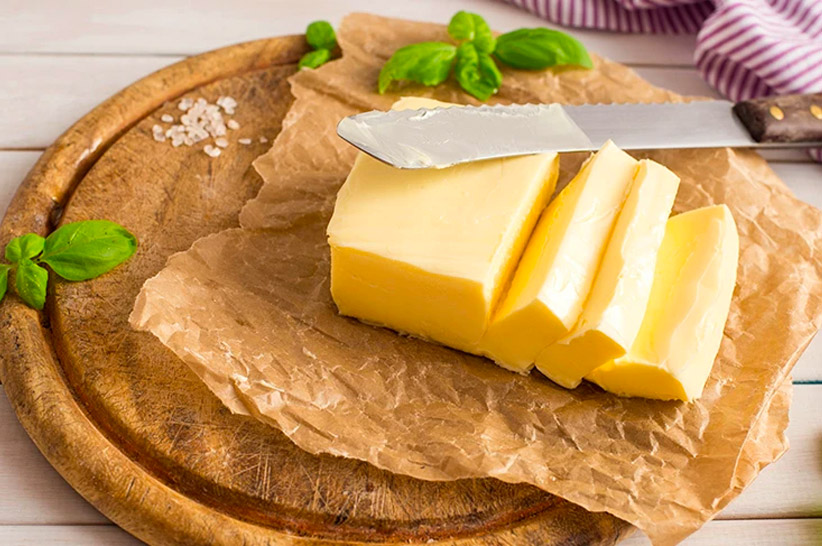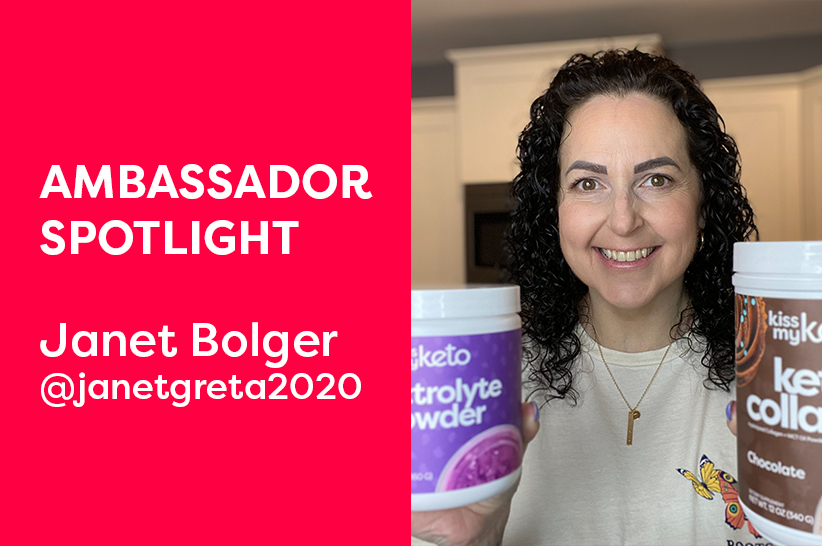Butter is a keto diet staple and the main ingredient of bulletproof coffee. Keto followers love it because it’s a high-fat food. Another thing that’s great about butter is that it only has the good fats along with other health-benefiting compounds
But because it is mostly fat, people are often concerned about the calories in butter, wondering how many there are in a pat and if those calories are bad.
In this article, we talk about butter nutrition facts with a special focus on the calories in butter. We also go into some butter health benefits and explain how butter can contribute to your keto diet and what alternatives you may want to consider.
Butter Nutrition
Long gone are the days when butter was blamed for everything from spreading your waistline to causing heart attacks and strokes.
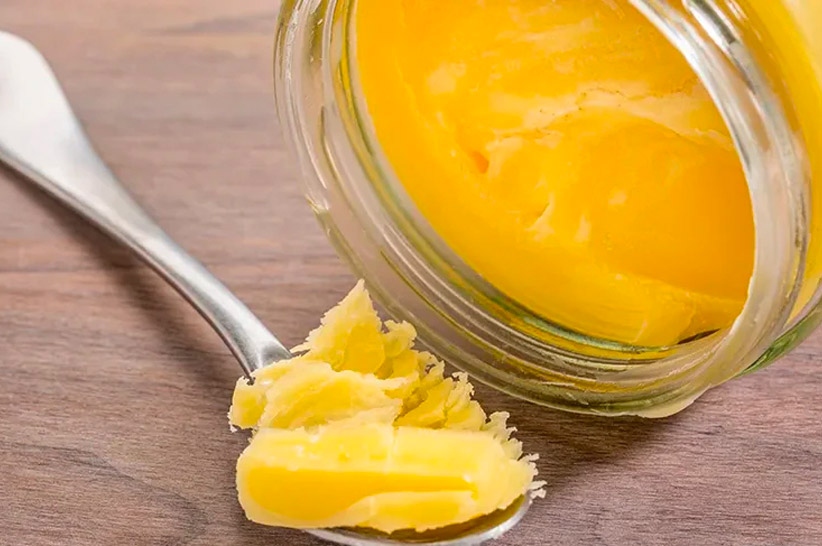
Nowadays, butter is considered a healthy and nutritious food. However, that’s true only when you eat butter in moderation because, truth be told, it is still high in calories. Butter is around 80% fat, and fat is the main contributor to its calorie count.
How many calories are in a tablespoon of butter?
You’ll get around 100 calories from a tablespoon (14 grams) of your favorite butter. Almost all of these calories are from fat. And because fat has more calories per gram than both carbs and protein, the numbers quickly add up (carbs and proteins have 4 calories per gram, while fats have 9 calories per gram).
On the plus side, many people find fats to be quite satiating. Fat is also difficult to digest, which makes overeating on it next to impossible.
How many carbs in butter?
Butter has no carbs, so no need to worry about it contributing to your daily carb limit.
The process of manufacturing butter renders it free of milk carbs (lactose) and even protein. Butter is essentially just milk fat and some types are even 100% milk fat.
What about vitamins and minerals?
As far as butter’s micronutrients go, it only provides a small amount of fat-soluble vitamins A, E, and K. Some brands may also contain substantial levels of vitamin D.
Butter provides negligible amounts of minerals like calcium, phosphorous, potassium, copper, and selenium. Salted butter may have moderate levels of sodium.

While butter is low on micronutrients, it can contribute to your daily nutrient requirements when combined with your favorite keto veggies. That’s because the added fat boosts the absorption of fat-soluble vitamins from these foods.
Butter also provides around 30 mg of cholesterol per tablespoon. In case you’re wary about dietary cholesterol, we’re here to tell you there’s no reason to worry. The latest research found that dietary cholesterol does not translate to greater blood cholesterol 1.
| Nutrition Facts – 1 tbsp (14g) : |
| Calories 102 |
| Total Fat12g |
| Saturated Fat 7g |
| Polyunsaturated Fat 0.4g |
| Monounsaturated Fat 3g |
| Trans Fat 0.5g |
| Cholesterol 30.5mg |
| Sodium 1.6mg |
| Potassium 3.4mg |
| Carbohydrates0g |
| Protein 4.2g |
| Vitamin A 7% of daily value |
| Vitamin E 2% of daily value |
| Vitamin D 2% of daily value |
| Vitamin K 1% of daily value |
Is Butter a Healthy Fat?
Yes, butter is rich in healthy saturated fats and has almost no unhealthy trans fats. In fact, around 70% of the fat in butter is saturated and at least 2% is unsaturated 2.
Doctors normally recommend avoiding saturated fats because older studies linked it to cardiovascular disease.
However, research took a turn in the past decade, and now evidence shows saturated fats provide unique health benefits and have minimal effects on cardiovascular disease risk 3. And when you really think about it, the first type of fat we consume is saturated fat from breast and formula milk, so why would it be bad for us?
Butter also contains special types of fats called medium-chain triglycerides that are easiest for your body to digest and the most popular on a ketogenic diet. Butter also contains a bit of essential omega-3 and omega-6 fatty acids, and grass-fed butter is especially rich in omega-3s.
Breaking Down Butter's Fatty Acids
Butter has a unique fatty acid profile that explains some of its many health benefits.
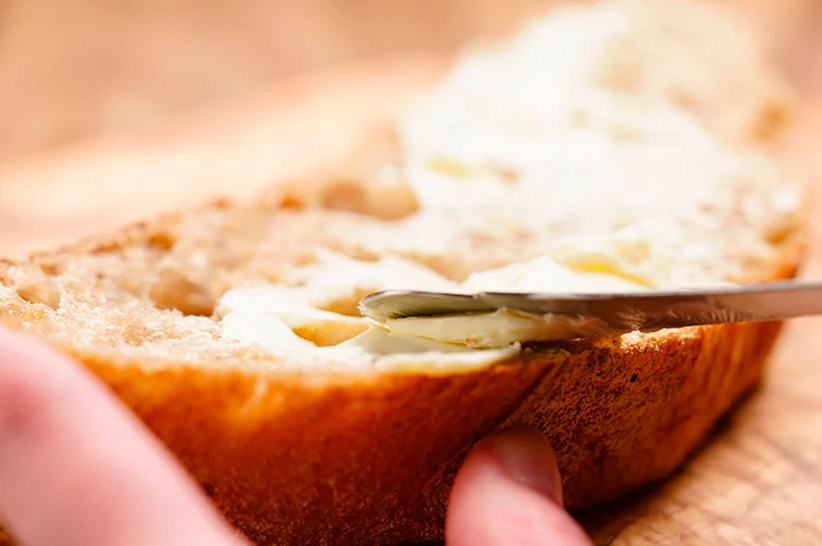
Oleic Acid
Around 30% of butter calories are coming from oleic acid, a monounsaturated fat 4. Studies show that this fat decreases bad, low-density lipoprotein (LDL) cholesterol, and increases good, high-density lipoprotein (HDL) cholesterol 4.
Palmitic acid
Butterfat is also around 15% palmitic acid, a type of saturated fat. It’s called palmitic because it’s a major component of palms and also palm and coconut oil. This fatty acid is an important precursor of phenethylamine, a compound that your body makes to protect nerves and reduce pain and inflammation.
Stearic acid
A long-chain saturated fatty acid, stearic acid makes up 15% of butter calories. Animal studies show that this fatty acid reduces visceral fat 6, fat that lines internal organs and is strongly linked to heart disease. One study even found that stearic acid protects against atherosclerosis 7.
Butyric acid
Butter contains a tiny amount of butyric acid (3%). Butyric acid is a short-chain saturated fatty acid. Bacterial fermentation in your colon naturally produces butyric acid because it is essential for the health and healing of the gut. Researchers are now considering butyric acid from butter as a treatment for irritable bowel syndrome, constipation, and colon cancer 8.
Is It Healthy to Eat Butter?
It’s definitely healthy to eat butter, but be mindful of its calories. Otherwise, you have no reason to avoid this food item.
Unfortunately, butter has been vilified for a very long time, not only because there are so many calories in butter, but also because it contains saturated fats. These fats were, for a long time, considered a major cause of cardiovascular disease.
But, as already explained, this is simply a myth and now studies show that moderate intake of butter boosts good, HDL cholesterol 9. Being a great source of butyric acid, butter can also improve colon health.
What Kind of Butter for the Keto Diet?
There are different types of butter to choose from. Below are some of the most popular keto butter options.

Grass-fed
Grass-fed butter is nutritionally superior to commercial butter because it has 500 % more conjugated linoleic acid (CLA) than grain-fed butter 11. CLA is an essential fatty acid that studies show helps people lose fat while gaining muscle 11. This butter is also higher in omega-3 fatty acids than regular butter.
Clarified butter
Clarified butter is 100% butterfat – no milk, no proteins, and no lactose – perfect if you are lactose intolerant or suffer milk allergies. It’s made by evaporate the butter and skimming its milk solids. Clarified butter has a high smoking point making it perfect for cooking. Keep in mind that this type has more calories than regular butter.
Ghee
Ghee is a special type of clarified butter that originated in India. It’s cooked longer than simple clarified butter, which browns the milk solids and gives it a signature nutty flavor. Ghee has a very long shelf life, some claiming of up to a year and more.
Best Butter Brands for a Keto Diet
Any butter is really good-enough for keto. But if you’re looking for the very best, go for some of our favorite keto butter brands:
- Organic Valley
- Kerrygold
- Smjor
- Allgau
Organic Valley produces butter during the warmer months when grass accounts for most of the cow’s feed.
You may also go for Kerrygold butter, which is easy to find at any local store. Keep in mind that Kerrygold cows feed on grains for 2 months during the winter. On the plus side, Kerrygold butter is affordable for a grass-fed product.
You can also go for other imported butters like Smjor, an Icelandic brand and Allgau, a German brand of cultured butter. Allgau feeds their cows only grass and grass-hay. The downside is that these tend to be on the pricier side.
If you want to save money, check out sales at value stores. You can even stock up on butter and store some in the freezer. This way, it will last you up to 3 months longer.
Eating Butter on Keto
Butter is great for hitting your daily macros. It’s also quite versatile. You can cook with it, bake with it, spread it, and use it as a condiment. Here are examples of how to butter your keto diet.
Add it to your keto coffee
Blending a hot cup of keto coffee with butter will give your mornings an energy boost. The saturated fats in butter, allegedly, slow down the absorption of caffeine giving you a steady flow of energy. The extra fat in your morning coffee can also help you get into ketosis sooner than later.
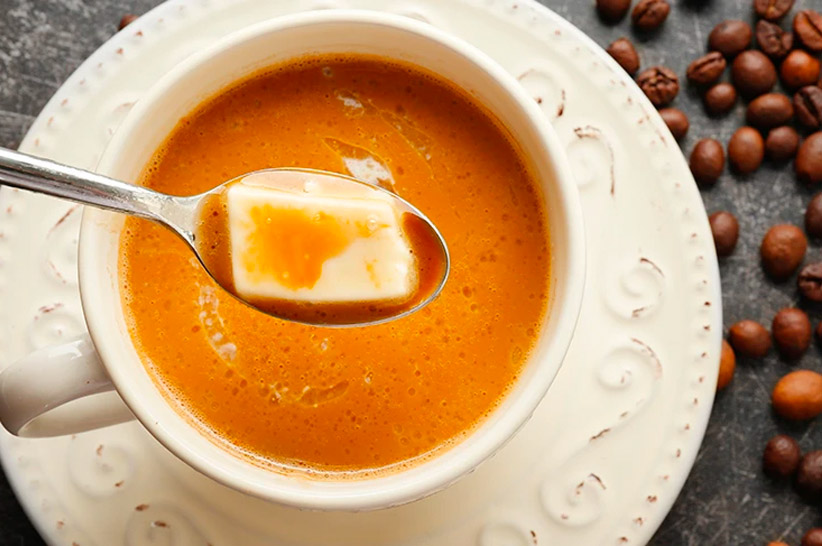
Photo by Shutterstock.com
Cook with it
Butter makes everything taste better. At Kiss My Keto, we have a wide collection of recipes for you to choose from. Simply select butter as an ingredient and apply the filter to find butter-rich recipes to add to your keto diet menu.
Use it as a spread
Put a pat of butter on your pancakes or spread it over keto bread. It’s easy and convenient and helps you meet your daily macros.
Make fat bombs
Fat bombs are made from foods high in saturated fats like butter and coconut oil. That’s because these fats help the fat bombs solidify. Fat bombs were invented for people on a keto diet and can be both savory and sweet.
What if I Don't Like Butter?
Don’t go for margarine. It’s a really poor substitute for butter and can’t compare with it in terms of health benefits and nutrition. Instead go for the following three alternatives.
Coconut oil
Coconut oil is mostly saturated fat so it’s a good plant-based butter substitute. Coconut butter is another great option. Keep in mind that coconut products have a strong coconut flavor that will transfer to your meals.
Shea butter
Another great butter substitute high in saturated fats. It’s also a good source of vitamins A and E and has anti-inflammatory properties.
Avocado
Avocado is not as rich in fat as butter, but it’s still a high-fat, creamy food that many deters like to use as a butter substitute in baking. You can also use it as a spread and filling ingredient in smoothies and baked goods.
Takeaways
- Don’t fret the calories in butter — embrace them, especially if you’re on a keto diet. All that fat and calories in butter will curb your hunger and help you hit your macros. It is true that butter is a high-calorie food, but it’s also healthy. You just need to keep your intake moderate.
- On a keto diet, make sure to go for grass-fed butter whenever possible. You want to get the most nutrients for your buck on keto, and this variety is best in that regard. There are also countless butter substitutes out there for when you’re looking for a change to your keto meals or if you simply don’t eat butter.


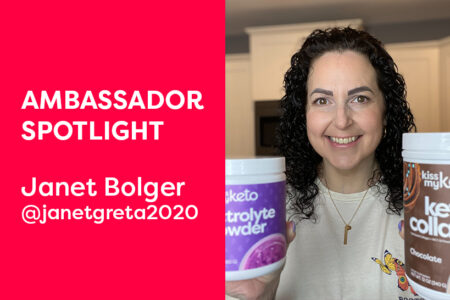

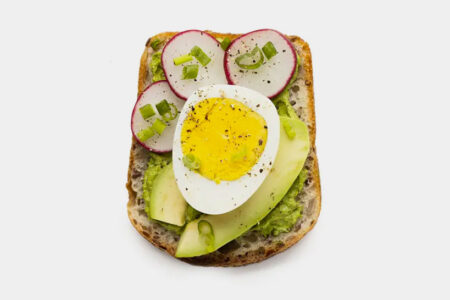
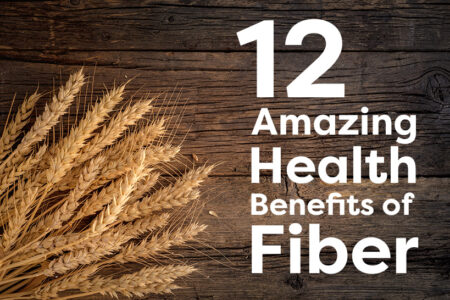


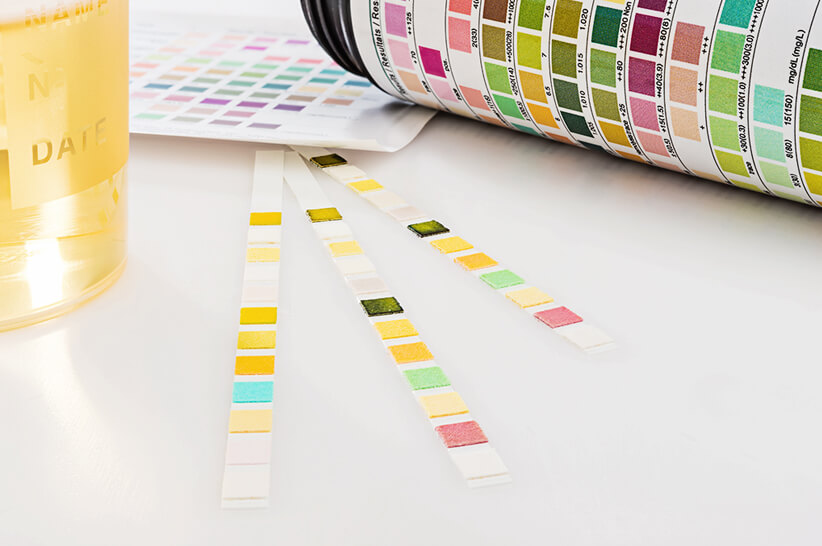
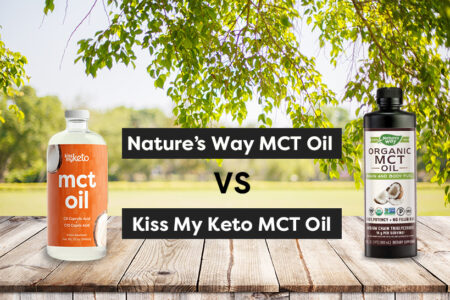
![Juicing for Weight Loss: Everything You Need to Know [Plus Recipes]](/wp-content/uploads/2019/08/Juicing-for-Weight-featured-image.jpg)

